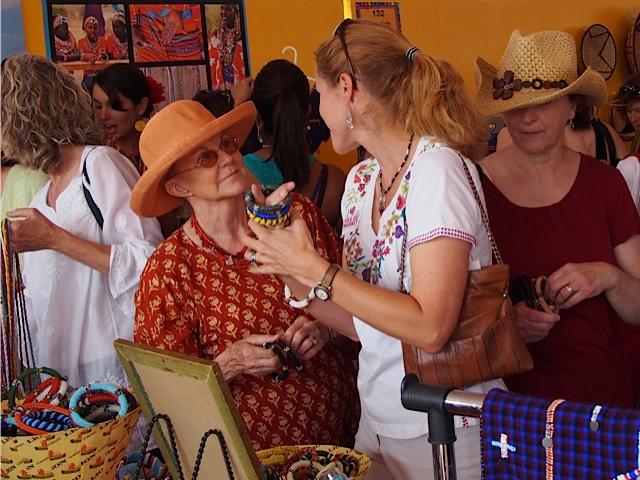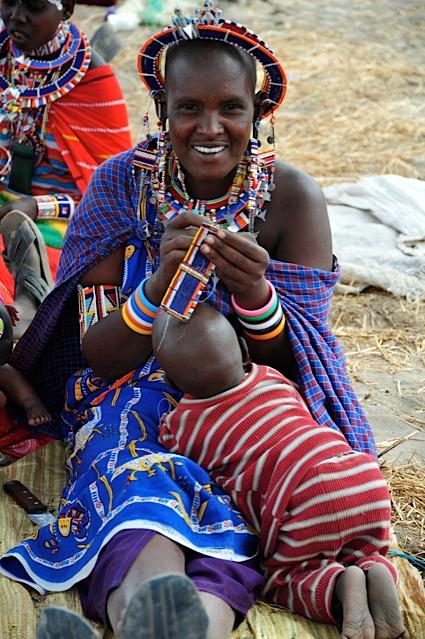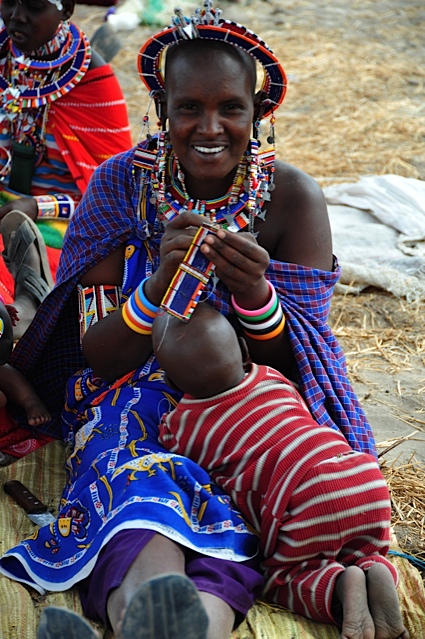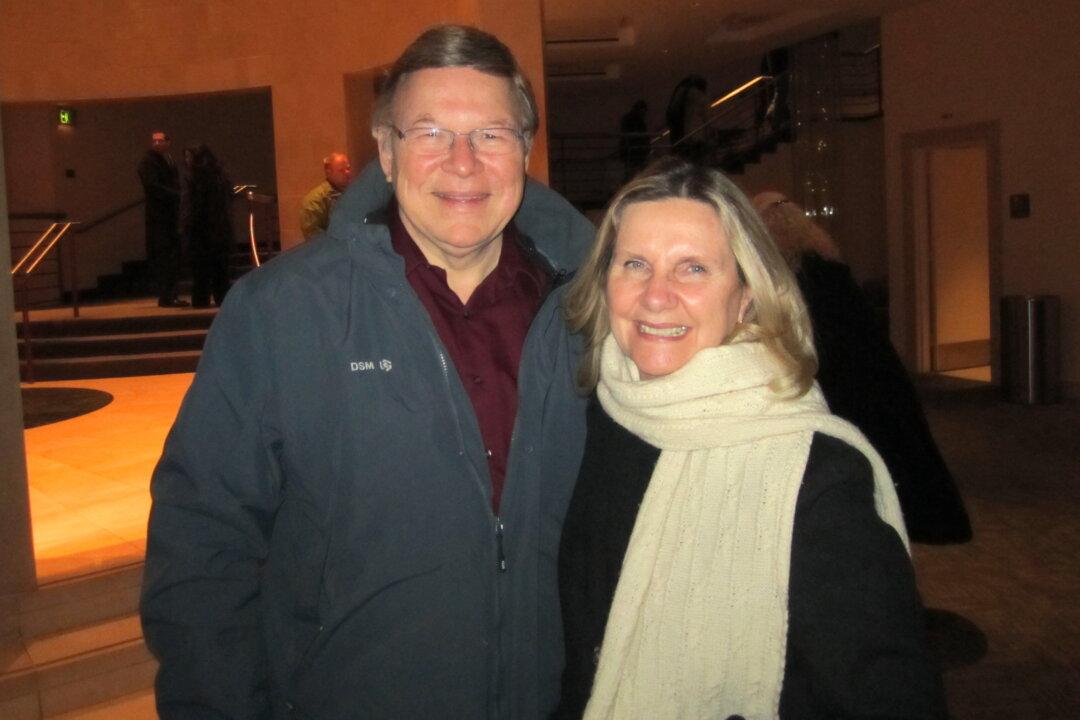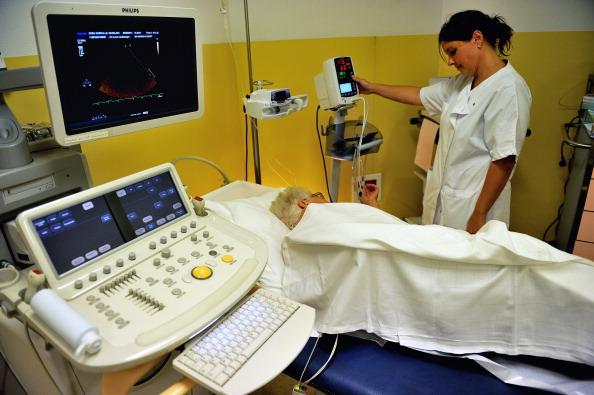The Maasai are a semi-nomadic tribe in Africa, one of the oldest cultures of Kenya. Distinctive colorful glass beadwork is a trademark of the Maasai and a tradition that spans centuries.
Now, 280 women from the tribe are using their extraordinary beadwork to educate about the dangers of female circumcision.
Beads are a symbol of beauty to the Maasai women and are of extraordinary value in weddings, ceremonies, and special occasions. It can take two women 40 to 50 hours to complete one caftan dress. The intricate pattern of this decorative beadwork is important to these women, and they have mastered their craft.
Maasai women of the Esiteti-Embarinkoi Hill region sold their beadwork, including bracelets, necklaces, rings, ceremonial dresses, and tribal necklaces, at the Santa Fe International Folk Art Market in New Mexico last month. Many shoppers were intrigued with the craftsmanship and interested in the mission behind the beads.
